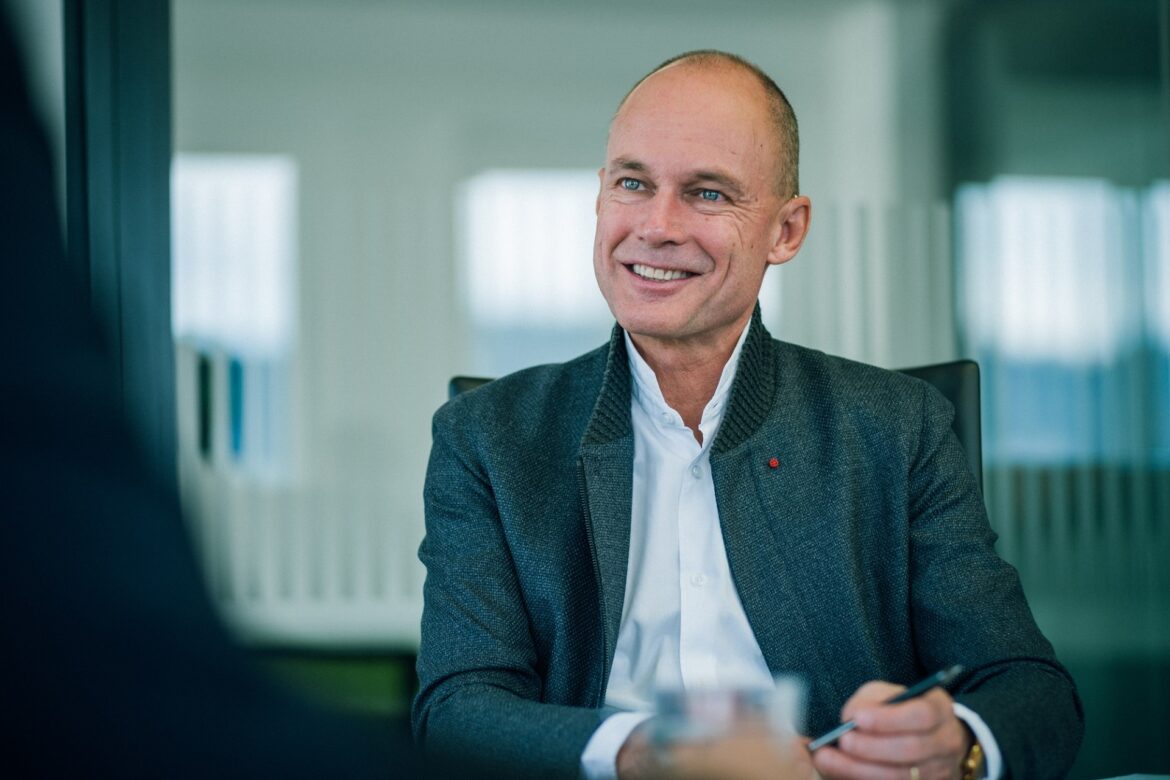The solutions to the climate crisis already exist. But to achieve a net-zero future, we need to go from depression to action. We have to show young people how many new jobs will be created, to educate them and to make them proud to embrace these opportunities by calling them with a prestigious name: the “Technicians of the Future”.
Young people are scared and angry. They march in the streets, glue themselves to pavements, camp in the middle of pipeline constructions – desperate to see some sort of reaction. They grasp the enormity of the challenge before us, but feel powerless to change that.
What sometimes gets lost in all this eco-anxiety is a simple fact: many of the solutions we need to stop the climate crisis are already here. At the Solar Impulse Foundation, we have identified more than 1500 clean and profitable solutions that can protect the environment while contributing to economic growth – an idea that unites rather than divides. Many more exist, of course, but they need the next generation of leaders to champion them.
When it comes to climate tech, we need to show today’s young people what can be achieved with these technologies. Massively increased efficiency. Capturing and re-using waste heat. Smart grids that harness all the existing energy and direct it to where and when we need it. Entirely new materials, re-use of old materials – all these are new industries to be developed.
I would go so far as to say that even if climate change didn’t exist, they would make sense. Clean growth is much better than the dirty status quo we have today.
And let’s be clear – this is a whole of society affair, not one for whom the benefits are reserved for the geniuses with innovative ideas. There are those developing technologies, those creating the conditions to encourage their uptake, and then there are the real actors of this transition – those actually installing these technologies.
That’s one of the major obstacles – there are not enough people trained and equipped to install solar panels and heat pumps and other such technologies. There is a need but there is a lag to train those individuals and carry out those tasks. It’s a fantastic opportunity to train new people, give new directions and reduce unemployment.
Young people need to know about these opportunities and know what avenues they must take to get to there, somewhere where they can direct their energies.
Take Solar Impulse. It demonstrated the enormous potential of modern technologies to save natural resources, use clean energy and improve our quality of life. For that mission we had engineers, aviation experts, communicators – but also people who knew how to install the solar panels, to maintain the plane’s systems, to ensure its fuselage was intact – each innovation creating an ecosystem of roles around it, many more than we might otherwise have expected. We obviously would never have succeeded just with two pilots.
I am convinced that many of the frustrated young people today would be equally thrilled to find their place within this transition and to embrace innovation in its various forms. What many of them lack is a sense of direction—and the tools to make the change they want to see in the world.
In this regard, schools and universities must play a much bigger role to empower the young leaders of tomorrow and inspire them by calling them the “Technicians of the Future”. Instead of simply feeling anxious for the future, they should be helped to channel their creativity and ambition.
The UAE’s Zayed Sustainability Prize has recognised leading global high schools for impactful and innovative solutions in sustainability for over 15 years. Take the students at Romain-Rolland-Gymnasium in Germany, for example, who were among the winners in the Prize’s Global High Schools category last year. They proposed to build a lighthouse powered by solar energy and an electrolysis-based fuel cell and use the space to host workshops and events to educate themselves on sustainable energy alternatives. This is precisely the kind of environment where groundbreaking ideas can thrive but where we can also see the many ways the ecological transition impacts our society.
Of course, education systems more generally need to be adopted to the new realities of the ecological transition. COP 28 in the UAE is one such example. As with each edition, it serves as a beacon of hope that we can figure out how to move quickly enough to curtail the worst impacts of climate change, whilst showing all that we can do to get us there. We must touch young people through this prism.
I grew up in a family of explorers, where I was taught that impossible is only in the mind, and to embrace innovation and constantly push boundaries, to think in all directions. We need our young people to learn to do just the same thing, to find their place in this transition, and to redefine what is possible.
By Bertrand Piccard- President and Founder of the Solar Impulse Foundation



